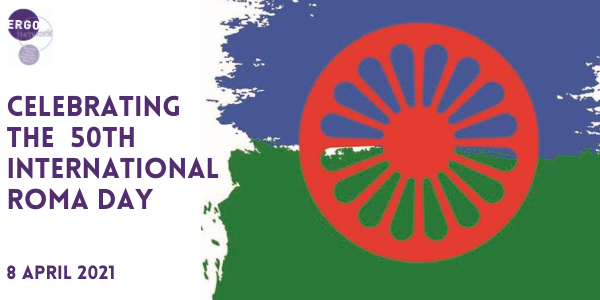Regional Conference: Fighting antigypsyism as a precondition to achieve equality for Roma
On 22 June, ERGO Network together with the Central Council for German Sinti and Roma, the Roma Active Albania and Equinet co-organised the Regional Conference: Fighting Antigypsyism as a Precondition to Achieve Equality for Roma – The Role of Ombudsperson Institutions and Equality Bodies. The Conference brought together equality bodies, national human rights institutions and civil society organisations from Western Balkan countries, European Commission Directorate-General for Neighbourhood and Enlargement Negotiations and the Ministry of Foreign Affairs Germany. Participants discussed on the role of equality bodies and ombudsperson institutions in the design, implementation, monitoring and evaluation of national Roma strategic frameworks to tackle antigypsyism based on the principles of non-discrimination and equality set out in the EU Treaties, reaffirmed in the EU Charter of Fundamental Rights, the Racial Equality Directive 2000/43/EC and the Council Framework Decision 2008/913/JHA on combating certain forms and expressions of racism and xenophobia by means of criminal law.
Some of the conclusions highlighted inter alia that equality bodies and ombudsperson institutions:
- have a mandate to deal with discrimination using civil and administrative law and most of them have a mandate to deal with hate speech using their general mandate for promotion of equality and fighting discrimination or broadly interpreting their mandate to tackle harassment.
- should also have a mandate to start own-initiative cases and use strategic litigation as an effective means to reach an impact that goes beyond the individual case.
- even in the absence of an explicit legal mandate to cover certain issues related to antigypsyism (such as hate crimes, for instance), can gather information, commission or conduct studies to reveal the extent and manifestations of antigypsyism
- can contribute with independent reports in the implementation of national Roma strategic frameworks.
- should raise awareness about antigypsyism and widely communicate positive, values-based messages; use their powers to advise governments and other policymakers so that policies and legislation contributes to challenging antigypsyism; use their powers to work with duty bearers, such as employers and service providers, to spread good equality practices
- should ensure close and structured cooperation with civil society. Equality bodies should enter into a constructive dialogue with pro-Roma civil society that should include mutual education where each party shares their unique knowledge and expertise
- work closely with Roma and involve them in their activities – as trainers and trainees, as valued partners and as employees of the equality body and ombudsperson institution.
The conference also emphasized the need for equality bodies and ombudsperson institutions to be provided with the necessary human and financial resources, powers and independence to conduct their work effectively. Participants saw this regional conference between equality bodies, the EU and civil society as an important step in building a closer and structured cooperation in fighting structural antigypsyism.
For more information about ERGO Network’s work on anti racism contact Isabela Mihalache , Senior Policy Adviser in the ERGO Network Brussels team.





